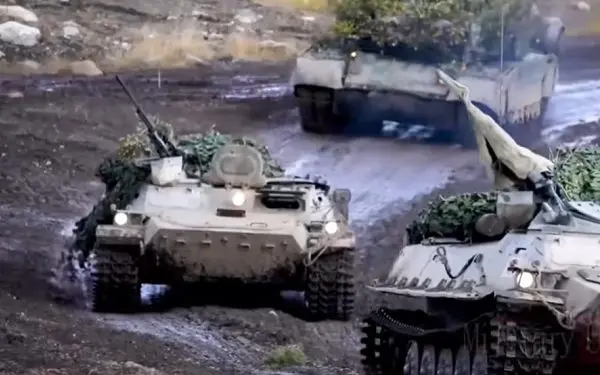Russian troops have entered the industrial part of the heavily besieged city of Severodonetsk, according to Luhansk regional governor Serhii Haidai on Monday, as fighting rages in eastern Ukraine. The Azot chemical plant is the only part of the area not yet taken by Russian troops, Haidai wrote on Telegram, transmits MIA.
The villages nearby are also under constant fire. There are around 300 civilians sheltering in the Azot plant, according to Ukrainian deputy prime minister Iryna Vereshchuk, though the situation was constantly changing. If those hiding out in the chemical plant want to be evacuated, officials will try to set up a safe escape route, Vereshchuk said, according to reports.
Russian news agency Interfax reported that 20 Ukrainian civilians were able to leave the plant on Monday using a passageway not controlled by Ukrainian forces. Separatist representative Rodion Miroshnik said they were safe and accused Ukraine of preventing civilian evacuations from the region with “constant shelling,” according to Interfax.
The Azot chemical plant is not built on a network of interconnected shelters, unlike the Azovstal steel plant in Mariupol, Haidai has said. Hundreds of Ukrainians were able to hold out in the sprawling network of tunnels at the Mariupol site until it was taken by Russian troops last month. Kyiv earlier conceded the loss of Metiolkine, a suburb of Severodonetsk. Meanwhile, forces loyal to Moscow continued their rescue efforts after Ukraine’s coastal defence forces launched a missile attack on floating gas production platforms in the Black Sea, Crimean leader Sergei Aksenov said.
More than 100 people were on the platforms, according to the latest count. Of those, 94 have been rescued. At least three were injured, while seven were still missing, Aksenov said on Telegram. Ukrainian lawmaker Olexiy Honcharenko also reported missile strikes on the production platforms.
The platforms are located about 100 kilometres from the coast of Odesa province and 150 kilometres from the Crimean Peninsula on the Black Sea shelf. In the course of Russia’s annexation of Crimea, the installations were occupied by Russia’s military in March 2014. As fighting continues, fears are growing that the Black Sea blockade by Moscow could lead to a global grain shortage.
Supplies of grain from Ukraine, a major exporter, have been drastically reduced due to Russia’s blockade of the country’s ports and the targeted bombardment of warehouses. Some 20 million tons of grain are unable to leave the country, with most of the grain intended for export to North Africa and Asia stuck in the port of Odesa. The EU’s foreign affairs chief Josep Borrell said he thought the problem would soon be resolved as he called the blockade of grain exports a “real war crime.”
Attempts are also being made to set up alternative land routes and Poland opened five additional checkpoints for trucks at a border crossing with Ukraine, the head of the Polish prime minister’s office, Michal Dworczyk, said at the Korczowa-Krakowiec border crossing. Warsaw hopes this will reduce congestion and waiting times, and Ukrainian Infrastructure Minister Olexandr Kubrakov said the step would also serve global food security.
Polish Agriculture Minister Henryk Kowalczyk recently said the government aimed to export 1.5 million tons per month. Kyiv recently suggested up to 5 million tons of grain could be transported by land via Poland but differences in the rail gauge are causing difficulties.
While diplomatic efforts are also ongoing, US President Joe Biden said he was unlikely to visit Ukraine during his upcoming trip to Europe and the Middle East. Speaking to journalists in Delaware, Biden said a visit could cause difficulties or distract the Ukrainian government.
Biden has not visited Ukraine since the Russian invasion on February 24 but he travelled to Poland in March, where he met US troops stationed on NATO’s eastern border. However, his wife Jill Biden paid an unannounced visit to Ukraine in May, meeting Olena Zelenska, the wife of Ukrainian President Volodomyr Zelensky, and refugees in Uzhhorod in the west of the country.
















